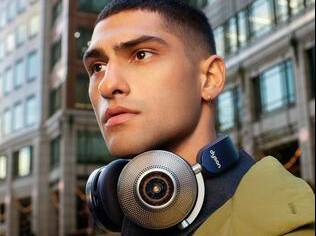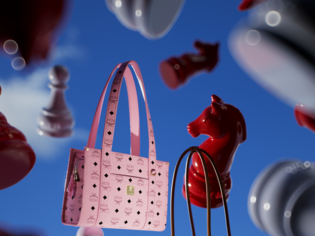The dream of mechanical cushioning started in 1984. It was then that biomechanical experiments with the goal of optimizing energy return began.
First, Nike designers and engineers added steel springs to a running shoe’s midsole to see if it would improve running economy. A year later, they trialed a multi-layer leaf-spring heel unit to see if they could find the sweet spot of cushioning and stability. Experiments on different hinges and mechanical columns continued throughout the rest of the 1980s.
It wasn't until 1997 that the solution of twin plates with foam columns birthed the original Nike Shox — ultimately reaching athletes' feet en masse in 2000. Countless experiments and an indelible aesthetic later, the system (including its myriad iterations in basketball running, training and tennis) remains a fan favorite — thanks in no small part to the bountiful fun of its "boing boing" promise.

Return of the Shox
Now, Shox return in new form. The start-from-scratch design was brought to concept in March last year and lands on feet (outside of Nike walls), with a larger retail drop in this year. The process counts among Nike's swiftest-ever deliverables and is a testament to renewed speed-to-market energy combined with unmatched technical expertise.
That is largely thanks to Aaron Cooper, Greg Thompson and Brian Farris’ 90 collective years of experience in product design, engineering and marketing. Cooper worked, fittingly, on a Shox product (the Shox BB4) and joined Thompson and Farris (regular and trusted partners throughout his career) to realize the system's latest iteration, the Nike Shox Gravity.
"We cannot overstate how much our experience helped speed up the process," shares Cooper. "We were able to make educated decisions based on digital or two-dimensional information that were able to push us a lot more quickly."
Thus, that trust in each other and their experience was essential. As Cooper notes, a lot of time was cut since the trio had "failed forward" so often in the past. Beyond, their experience helps translate rapid prototypes with a fair amount of accuracy in regard to how a product will fit, feel and test in reality.



Cooper, Thompson and Farris offered an initial concept in March last year and hit the ground running (pun intended) in April. They first utilized Nike's rapid prototyping capabilities at Nike's world headquarters in Beaverton, Oregon, and swiftly translated their initial ideas at factory level. Consistency in process between the two locations meant, in Cooper’s words, that "we were able to put something on the table that we could see and feel and get a sense of proportion very quickly…and also produce something that we could put on our feet."
For the latest Shox, creating a specific in-shoe experience became the trio’s priority. "Any time we create a new innovation platform, the most important thing is that we're actually adding a new experience to our portfolio," says Thompson.
Runner feedback illuminated two distinct sensations to help them determine what that desired experience was. First was weightlessness, which the athletes described as "that floaty feeling you get when skiing fresh powder." Runners in Southern California referenced wanting to replicate the feel they got on a surfboard, saying they said they wanted to "surf the pavement."
Thus, the latest Shox design is predicated equally on feeling and aesthetic. "I think in the past, we were too obsessed with the visual of four pucks as Shox. We now know that the experience is what is most important," notes Thompson.
Cooper adds: "This is closer to Bruce Kilgore's original desire and intent. We were able to go back to that leaf-spring design."
Think of it as an equation: plate + puck + pillars + outsole = an integrated composition in which each element works together to produce the final ride. "We've created an amazing underfoot experience combined with great fit and containment in the upper," says Thompson. "It definitely provides a more well-rounded experience than any of the previous models."
For Cooper, the silhouette also represents achievement as the "fastest design from athlete insight to athlete feet that Nike has ever done from a blank piece of paper."

And, not just in single form. Cooper and Farris delivered the project and Thompson helped form 25 different versions. These kicked off in early 2018 with the Shox Gravity, with additional colorways following shortly after.



















